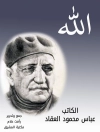In ‘The Confessions of Al Ghazzali, ‘ the revered Islamic scholar Abu Hamid Al Ghazzali delves into the depths of self-examination and the quest for spiritual enlightenment. This poignant work intertwines philosophical inquiry with lyrical prose, reflecting the rich tapestry of Islamic thought during the medieval era. Ghazzali’s unique narrative style combines autobiographical elements with broad theological discourse, exploring the internal struggles he faced as he grappled with doubt, faith, and the nature of existence. Through this introspective lens, Ghazzali sheds light on the profound challenges of achieving inner peace amidst external chaos, bridging the realms of mysticism and rationality. Al Ghazzali (1058-1111), renowned as one of the most influential figures in Islamic philosophy and mysticism, experienced a profound personal crisis that catalyzed the writing of this autobiographical work. His journey from a prominent academic to a seeker of truth led him to embrace Sufism, shaping his thoughts on spirituality and morality. This transformative period not only influenced Ghazzali’s life but also positioned him as a pivotal figure in harmonizing faith with reason, offering insights that remain relevant today. For readers interested in the intersections of faith, philosophy, and personal reflection, ‘The Confessions of Al Ghazzali’ is an essential text. It serves not only as a window into the mind of a monumental thinker but also as a guide for those navigating their own spiritual quests. Ghazzali’s profound insights and eloquent style can inspire a deeper understanding of one’s beliefs, making this work a timeless treasure in the canon of spiritual literature.
เกี่ยวกับผู้แต่ง
Abu Hamid Muhammad ibn Muhammad al-Ghazali, known as Al-Ghazzali in the Western scholarly tradition, was a polymath born in 1058 in Tus, within present-day Iran. Renowned as one of the most brilliant philosophers, theologians, jurists, and mystics of the Islamic Golden Age, Al-Ghazzali’s intellectual legacy reverberates across centuries and cultural borders. His magnum opus, ‘Ihya’ ulum al-din’ (The Revival of the Religious Sciences), has had a profound influence on both Muslim and Western philosophical thought. The ‘Confessions of Al Ghazzali’ is an autobiographical account that gives insights into his profound spiritual transformation. Al-Ghazzali’s works often delve into the intricacies of philosophy, Sufism, and theology, reflecting a commitment to synthesizing reason and faith. Esteemed for his reconciliation of the philosophical spirit of the Greeks with Islamic thought, his writing style is characterized by rigor and a clarity that seeks to make complex theological concepts accessible to a broad audience. Al-Ghazzali remains a towering figure, not only within the discipline of Islamic studies but also in the annals of world philosophy and religious thought. His literary contributions continue to be the subject of extensive scholarly research, forming a crucial part of the curriculum in studies of medieval philosophy, Islamic theology, and Sufism.












